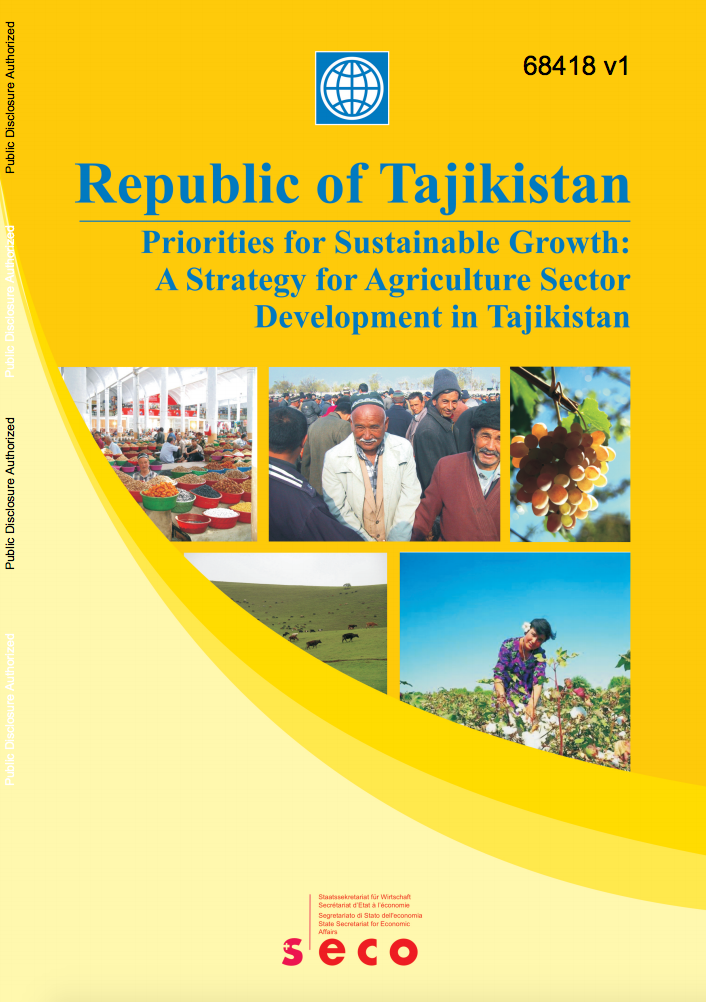Priorities for Sustainable Growth : A Strategy for Agriculture Sector Development in Tajikistan
Agriculture sector growth has made a
powerful contribution to post-war economic recovery in
Tajikistan, accounting for approximately one third of
overall economic growth from 1998 to 2004. Sector output
increased by 65 percent in real terms during this period,
and has now returned to the level extant at independence in
1990. Total Factor Productivity (TFP) has also increased, by
3 percent per year. Despite this progress, there is


